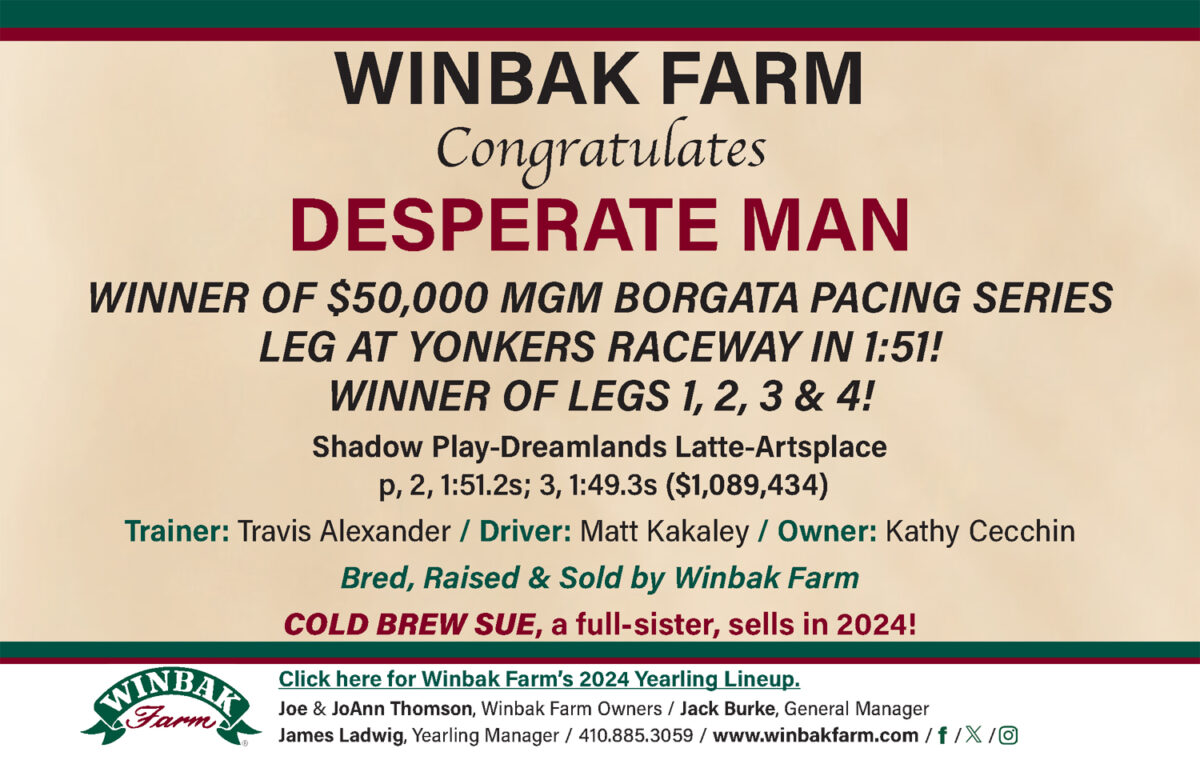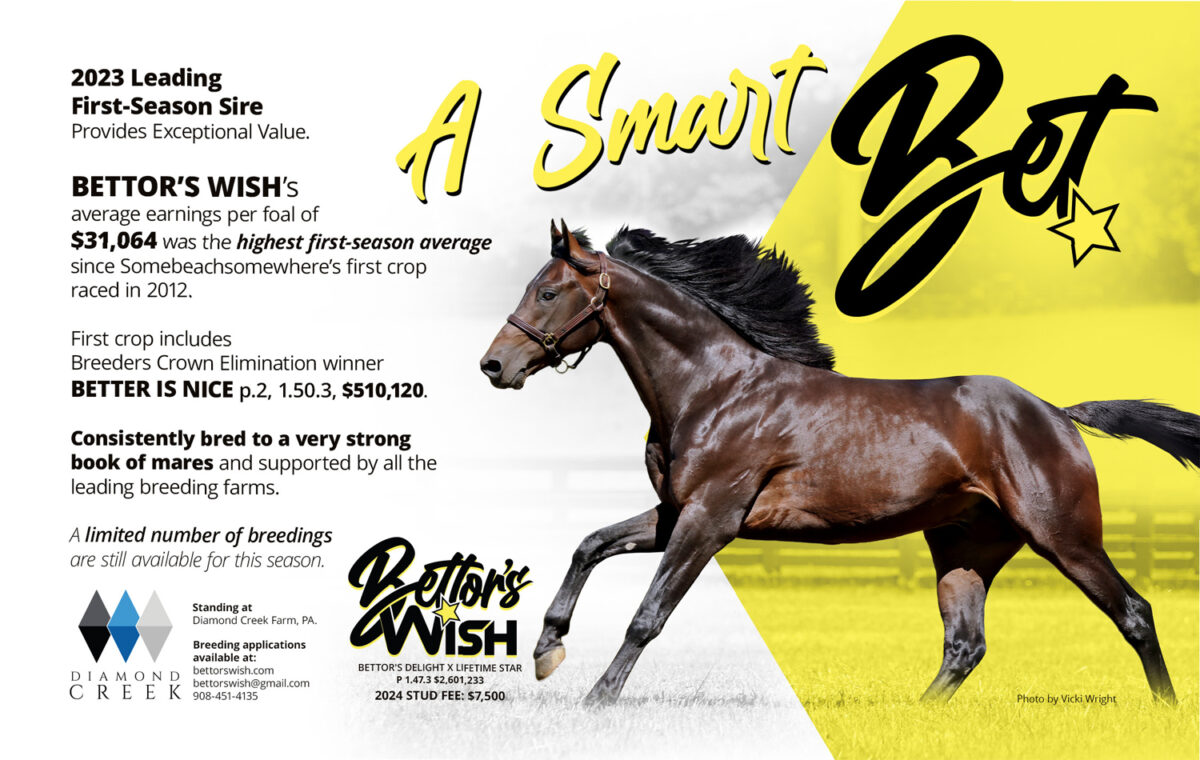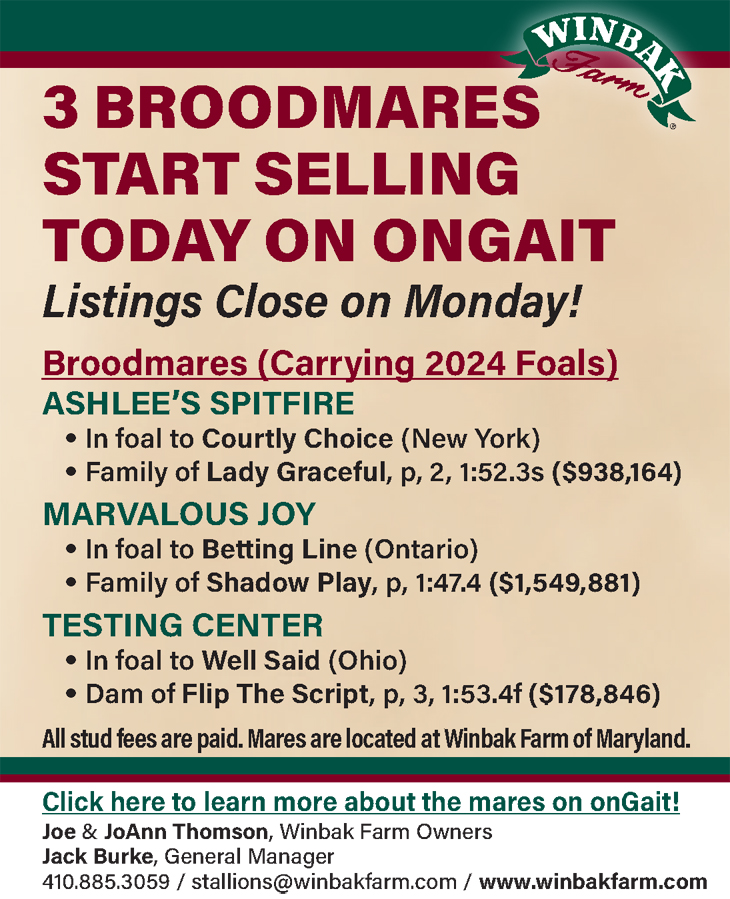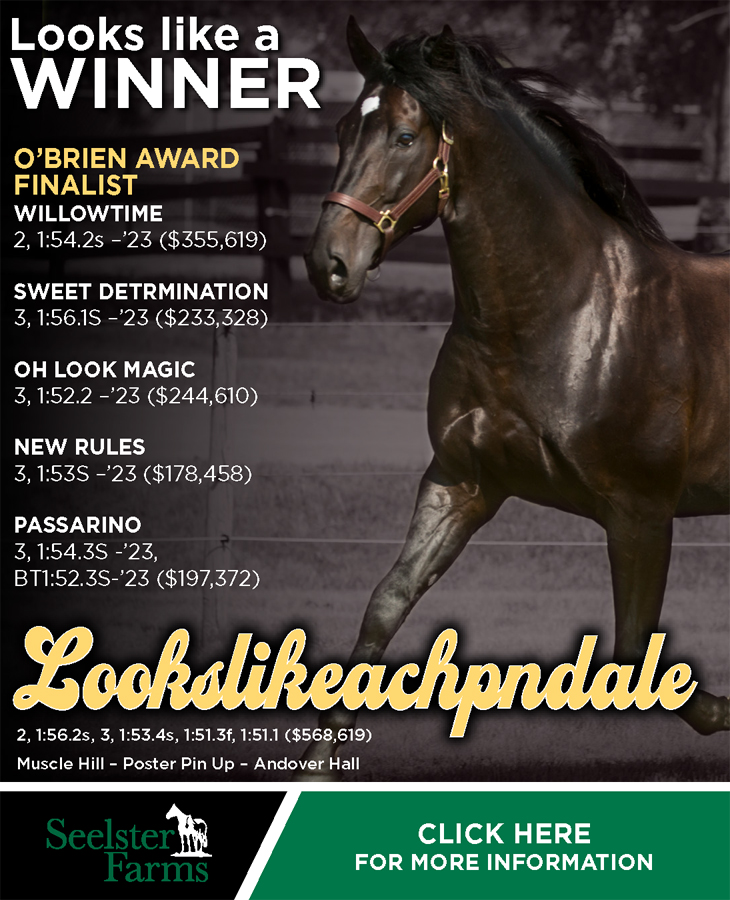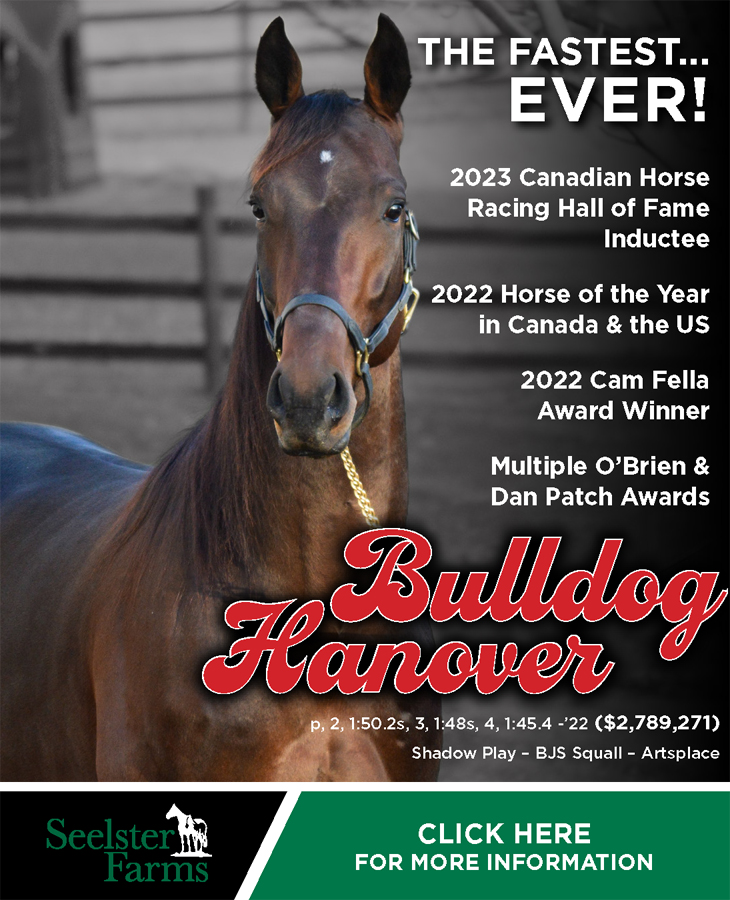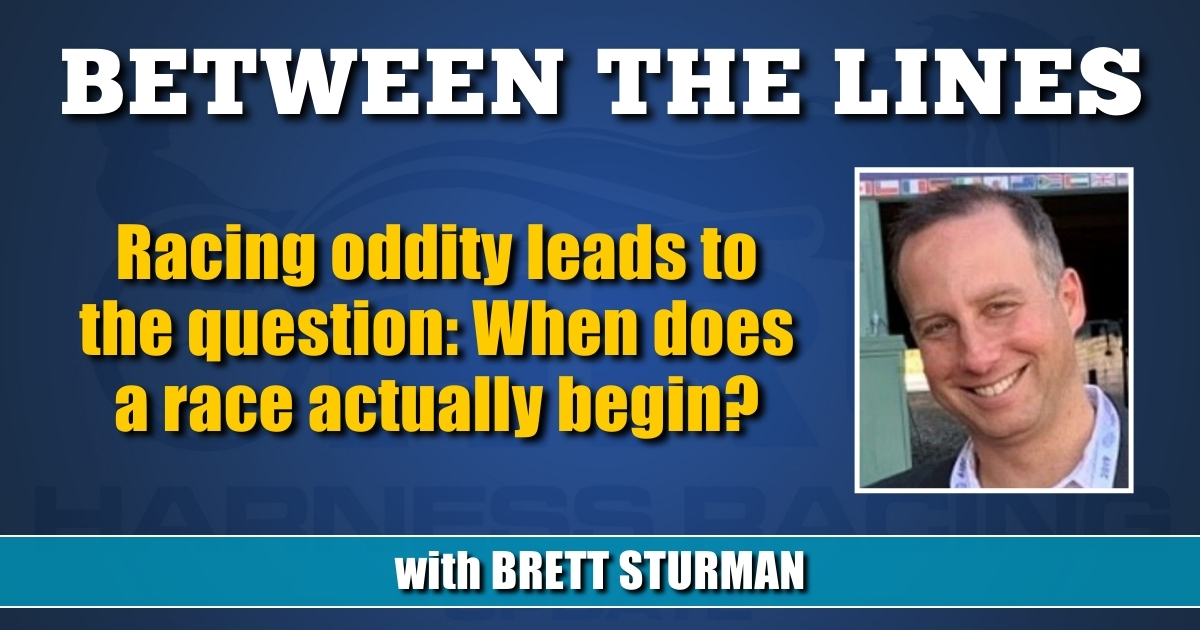

Racing oddity leads to the question: When does a race actually begin?
by Brett Sturman
Just when you think you’ve seen it all, a refund and a disqualification from a race at Northfield Park this past week put an interpretation of starting rules to the test.
In the third race on Tuesday night (Jan. 12), a non-winners $750 in last 4 condition on the pace (replay here), the confusion arose between Igotallnet driven by Kurt Sugg from post 3 and Downwyn Shark starting from the second-tier post 9 with Aaron Merriman. If you watched it live or on replay, the race itself seems innocent enough. From the second-tier, Merriman and Downwyn Shark get away neatly in third, come first-over before the half, clear down the backstretch and win by nearly 10 lengths as the 4-5 favorite.
But on closer examination, which can be seen at the very start of when the race replay begins, Merriman’s horse briefly gallops while under starter control around the turn into the stretch. I timed it, and it was a good 14 seconds before the starter let the horses go. What occurred is that Merriman’s gelding Downwyn Shark struck the wheel of Sugg’s Igotallnet. Following a lengthy inquiry, Downwyn Shark was disqualified and Igotallnet had all wagers involving him refunded.
Exchanging messages with Merriman, he said, “I think it was a very bad call. It’s very contradicting. I struck the tire over an eighth from the start.” According to Merriman, the wheel he struck was not flat at the start for if there was, then there would have been a recall. He added, “If (Sugg) had interference before the start or if he had broken equipment before the start it’s the driver’s job to inform the starter. If he felt his tire was going flat, he didn’t tell inform the starter. So, it can’t be a non-starter or a disqualification.”
Here’s the thing. Let’s say for argument’s sake that it’s debatable as to whether the tire was flat an eighth mile from the start, started going flat before the start, or didn’t go flat until some other point in the race. The real question is: how can a horse be disqualified for interfering with a horse that was eventually declared a non-starter and for an event that took place almost 15 seconds before the formal start of a race?
Section 16.05 of the USTA rule book says that “the starting point will be appropriately marked a distance of not less than two hundred feet from the first turn. The starter shall give the word ‘go’ at the starting point.” Similar rules from sections 16.08 and 16.14 state that horses are considered starters once the word “go” is given. From those rules, wouldn’t there be a presumption that anything prior to the point of the starters word “go” has occurred prior to the actual start of a race?
On Twitter, Brian Loney who owns and trains the disqualified horse Downwyn Shark, said, “The bottom line is that we get held accountable for everything we do but no one else does. The starter should have had a recall but he didn’t.” He also said, “And (the starter’s) mistake didn’t just cost me. It also cost the bettors and, as a matter of fact, Northfield Park, too.”
It’s hard to argue with Loney’s statements. Particularly, why are the bettor’s held accountable for whatever may have transpired well before the race but that wasn’t picked up on by race officials? At the absolute very least, why not just make both horses non-starters and issue refunds for both? The way it played out, a winning horse was disqualified for pre-race interference with a horse that eventually wasn’t even a starter.
I think even more interesting is the question of when does a harness race even begin. Obviously it just doesn’t begin with the word “go” because there are clearly events that occur while under the starter’s control that have an impact on the race. It’s far from this instance, too. All the time horses lag the starting gate and some are miles behind altogether. It’s the reason why there are massive last second odds swings due to horses that are better positioned than others seconds before the “official” start of a race.
By extension then, couldn’t you then say that wagering occurs during an event has already started? That’s based on not only that advantages are to be had by horses over others prior to “go”, but particularly from the Northfield example. The race had to have started around an eighth of a mile before the start; otherwise it would be impossible to disqualify a horse in pari-mutuels for a race that hadn’t even begun. What if the incident had occurred even further from the start; where is the line drawn?
It’s been said before on related topics, but the simplest thing to do would be to end wagering prior to horses being under control of the starter. That way, it eliminates all unfairness and uncertainty from a wagering standpoint. Tracks would never want to do it unfortunately because of claims that it would cause a reduction in handle, though I wouldn’t see that being the case if a countdown clock was established 20 minutes before post that explicitly counted down to when wagering will cease. All the money that comes in today in the last three minutes of a post drag would simply come in those final three minutes to countdown.
Interference, broken equipment and any other type of bad racing luck is all part of the game. So are bad calls and controversial disqualifications. That goes with the territory of wagering on harness racing or any sport. But those instances must apply to in-race activities only, and it would be beneficial to know exactly what that starting point is. It wasn’t evident this past week.







